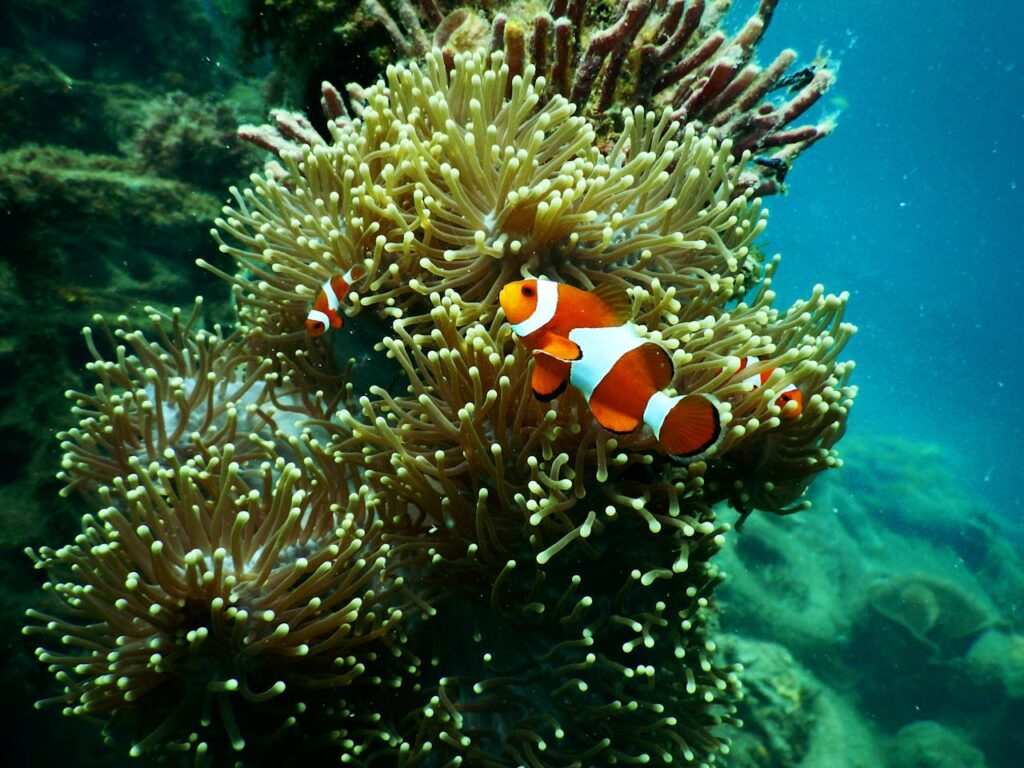When we think of marine life, images of colorful fish, sea turtles, and deep blue waters often come to mind. But one of the most vital and fascinating ecosystems in our oceans is often overlooked — coral reefs. These vibrant underwater structures not only support marine biodiversity but also play a crucial role in protecting the Earth and humans from natural disasters.
🌍 What Are Coral Reefs?
Coral reefs are large underwater structures composed of the skeletons of colonial marine invertebrates called coral. These corals live in warm, shallow ocean waters and form reefs over thousands of years by secreting calcium carbonate. What makes coral reefs extraordinary is that they support about 25% of all marine life, even though they cover less than 1% of the ocean floor.
Types of Coral Reefs:
- Fringing reefs – Found close to shorelines
- Barrier reefs – Separated from land by a lagoon (e.g., Great Barrier Reef)
- Atolls – Ring-shaped reefs formed around sunken volcanoes
🌱 How Coral Reefs Benefit the Environment
1. Biodiversity Hotspots
Coral reef are often called the rainforests of the sea. They are home to thousands of species including fish, crustaceans, mollusks, sea turtles, and marine mammals. This biodiversity is critical for maintaining healthy marine ecosystems.
2. Natural Water Filters
Corals help keep the ocean clean. They filter out particles and pollutants from the water, which improves water quality and helps other marine organisms thrive.
3. Carbon Sink
Although small in size, coral reefs play a role in carbon and nitrogen cycling, helping to regulate carbon dioxide levels in the atmosphere and reduce the impact of climate change.
🛡️ How Coral Reefs Protect Us From Natural Disasters
One of the most underrated roles of coral reef is their ability to act as natural barriers:
1. Protection From Storm Surges
Coral reefs reduce the power of incoming waves during storms, hurricanes, and cyclones. This helps prevent coastal erosion and protects human settlements, infrastructure, and farmland.
2. Flood Prevention
By breaking the force of waves, reefs reduce the height and energy of tides and surges, which significantly lowers the risk of flooding in coastal areas.
3. Cost-Effective Coastal Defense
Studies show that maintaining coral reefs is far more cost-effective than building artificial barriers like seawalls or breakwaters.
💡 Economic and Human Benefits
1. Tourism and Recreation
Millions of people visit coral reef each year for diving, snorkeling, and marine tours. This generates billions in tourism revenue and supports local communities.
2. Fisheries and Food Security
Coral reef fisheries provide food and income for millions of people worldwide. They are a vital source of protein for coastal populations, especially in developing countries.
3. Medical Discoveries
Coral reef organisms have been used in medical research for treatments of cancer, arthritis, bacterial infections, and more. The biodiversity of coral reef holds untapped potential for future pharmaceuticals.
Visit Category: Environment
⚠️ Threats to Coral Reefs
Despite their importance, coral reef face serious threats:
- Climate change and ocean warming
- Coral bleaching
- Overfishing
- Pollution and sedimentation
- Destructive tourism
If not protected, these ecosystems could collapse, leading to loss of marine life and reduced natural protection for human communities.
✅ How We Can Help Protect Coral Reefs
- Reduce plastic use and ocean pollution
- Support sustainable seafood choices
- Advocate for marine conservation policies
- Practice reef-safe tourism and diving
- Support organizations that protect coral reef
📝 Final Thoughts
Coral reefs are more than just beautiful underwater worlds — they are crucial for the health of our planet. From supporting marine biodiversity to protecting coastal regions from natural disasters, these ecosystems are silent warriors in the fight against climate change and environmental degradation. Preserving it means preserving life — both above and below the ocean’s surface.
Learn more information here

